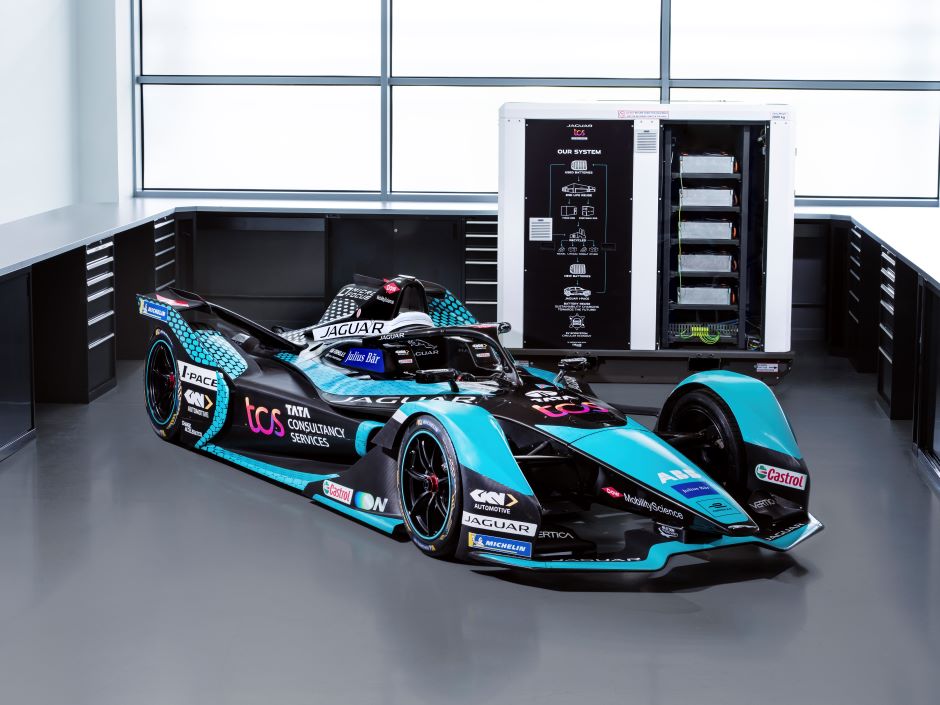Jaguar Land Rover gives second life to I-PACE batteries
Jaguar Land Rover has partnered with Pramac to develop a portable zero-emission energy storage unit powered by second-life Jaguar I-PACE batteries.

Called the ‘Off Grid Battery Energy Storage System’ (ESS), Pramac’s technology supplies zero-emission power where access to the mains supply is limited or unavailable. It features lithium-ion cells from Jaguar I-PACE batteries taken from prototype and engineering test vehicles.
The partnership is the first in JLR’s plans to create new circular economy business models for its vehicle batteries as part of its commitment to net zero status by 2039.
Post-vehicle applications exist because Jaguar Land Rover’s batteries can be safely deployed in multiple low-energy situations once battery health falls below the requirements of an electric vehicle.
The flagship system has a capacity of up to 125kWh. This is more than enough to fully charge Jaguar’s all-electric I-PACE performance SUV, the company said, or to power a regular family home for a week based on 2019 average annual household electricity consumption in the UK.
Register now to continue reading
Thanks for visiting The Engineer. You’ve now reached your monthly limit of news stories. Register for free to unlock unlimited access to all of our news coverage, as well as premium content including opinion, in-depth features and special reports.
Benefits of registering
-
In-depth insights and coverage of key emerging trends
-
Unrestricted access to special reports throughout the year
-
Daily technology news delivered straight to your inbox










Water Sector Talent Exodus Could Cripple The Sector
Maybe if things are essential for the running of a country and we want to pay a fair price we should be running these utilities on a not for profit...